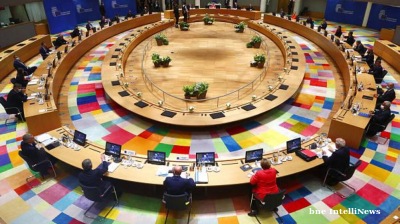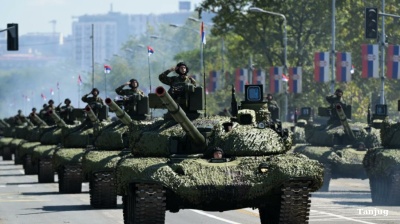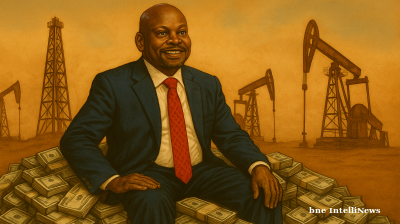Syria signed investment memoranda of understanding for 12 strategic projects worth $14bn with international companies in Damascus on August 6, marking the country's push to attract foreign investment and rebuild its economy, state media SANA reported.
The signing of the several deals follows the removal of US sanctions against the country following the collapse of the former al-Assad regime in 2024 and the subsequent installation of the Turkish-backed regime in Damascus led by Ahmed al-Sharaa. UAE, Turkish, Qatari and Italian companies are the biggest winners in the post-Assad Syria, with several Turkish and other companies winning contracts.
The signing ceremony took place at the People's Palace in Damascus in the presence of President Ahmed Al-Sharaa and US Special Envoy to Syria Thomas Barrack, who noted that Damascus has been considered a centre for trade and transport for thousands of years.
Syrian Investment Authority Chairman Talal Al-Hilali said the projects would form a qualitative leap in infrastructure and economic life across Syria.
"Our meeting today is not just a formal occasion, but a clear and explicit declaration that Syria is open to investment, determined to build a prosperous future, and ready to work side by side with our trusted partners to write a new chapter of revival and construction," he said.
The major projects include Damascus International Airport with an investment of $4bn, Damascus Metro with $2bn investment for infrastructure and urban mobility, Damascus Towers with $2bn investment, Baramkeh Towers with $500mn investment and Baramkeh Mall with $60mn investment.
"These projects are not just real estate investments or infrastructure, but they are engines for generating job opportunities and bridges of trust between Syria and global investors," Al-Hilali said.
Ayman Hamwiyeh, adviser to the Supreme Commission for Economic Development in Syria, said at a press conference following the signing that the focus is on projects affecting citizens' lives, with coordination between all ministries and governorates to complete investment studies.
"There is a great focus on housing projects as they are among the most labour-intensive projects across Syria as a whole. Syria also faces a housing problem due to the bombing of villages and cities by the former regime," Hamwiyeh said.
The Syrian government seeks to create a safe and neutral investment and economic environment and transition to a free economy through new laws that have been issued, he added.
News

Afghanistan rejects Donald Trump's demands for Bagram air base return
Afghanistan firmly rejects Trump's demands for Bagram air base return, stating "not even an inch" of Afghan territory will be given to US despite threats.

UK, Australia and Canada recognise Palestinian state as Netanyahu threatens settlement expansion
UK, Australia and Canada formally recognise Palestinian state on September 21, with Netanyahu hinting at increased settlement expansion in response to international pressure.

EU finance ministers discuss Ukraine's Reparations Loan but no decision yet
EU finance ministers met in Copenhagen on September 20 to discuss tapping the cash pile of frozen Central Bank of Russia (CBR) money and using it to make a large Reparation Loans to Ukraine, but no final decision has been reached.

Serbia stages one of its largest military parades in decades
Fighter jets roared over the capital in a spectacle designed to showcase the power of the Serbian Armed Forces at a time of political tensions at home and increasing instability across the Western Balkans.




